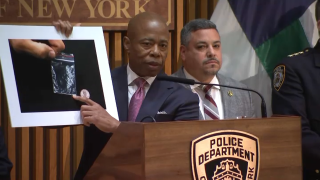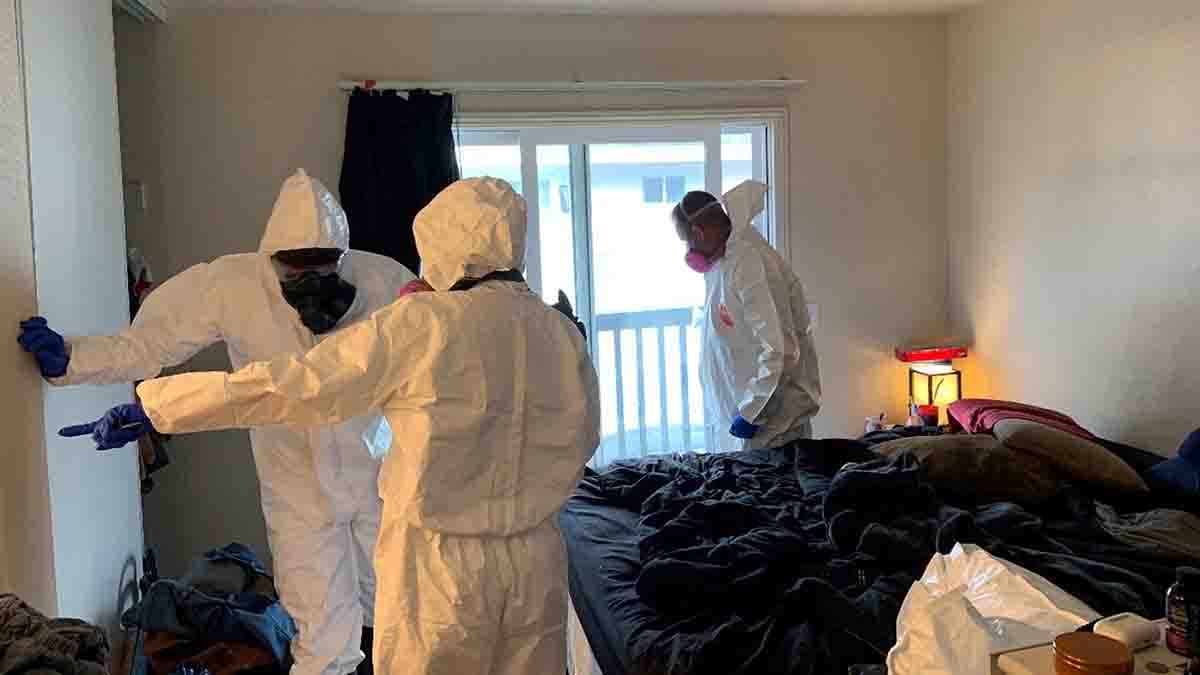
What to Know
- Police say they are searching for the husband of a New York City daycare worker who is facing charges in connection to the death of a 1-year-old boy after an apparent exposure to opioids.
- This latest development comes after the the owner of a New York City day care center and a tenant living in the building were arrested Saturday in connection to the case.
- The arrests came one day after authorities discovered four young children – ranging in age from 8 months to 2 years old – showing signs of suspected opioid overdose after spending time at the Bronx day care center, Divino Niño.
A taped package containing several thousand dollars worth of fentanyl was discovered inside the New York City day care center where a 1-year-old child died of an opioid overdose last week, according to a court filing.
The owner of the day care center, however, maintained she had no knowledge of the presence of the highly-potent opioid, which sickened three other young children, including an 8-month-old girl who tested positive for fentanyl use.
The drug was found near a mat where the children had napped, Joseph Kenny, the New York Police Department’s chief of detectives, said at a news conference Monday evening.
Grei Mendez, a 36-year-old who operated the Divino Niño day care inside a Bronx apartment, pleaded not guilty on Sunday to murder charges in the death of Nicholas Dominici. A man who rented a room inside the Bronx apartment, Carlisto Acevedo Brito, 41, is awaiting arraignment on the same set of charges.
Police said they recovered approximately one kilogram of fentanyl, along with a press device used to combine the drug with other narcotics, inside the closet of a hallway connected to the apartment. A second press was located inside the adjoining room occupied by Brito, according to a criminal complaint.
“We’re not going to allow this incident to take place and ignore this as just another day, another tragedy in the city,” New York City Mayor Eric Adams said at the news conference. “It’s not acceptable.”
An attorney for Mendez, Andres Aranda, said his client lived above the day care center and rented out a room to Brito, her husband’s cousin, for $200 per month.
“Apparently when the day care was not open, people came in and out of the apartment,” Aranda said.
Friday was a “normal day” inside the day care center, with Mendez bringing the children upstairs, reading and cooking for them, then putting them to sleep, he said. But when Dominici didn't wake up from his nap, she became terrified, calling 911 and shouting for neighbors, her lawyer said.
Mendez, who also works as a home health aide, was sent to Rikers Island without bail following an arraignment Sunday night. Brito is due to appear in court on Monday afternoon. A message left with Brito's attorney wasn't immediately returned.
The day care facility opened in January of this year. It passed both of its inspections, authorities said, including a surprise visit made by inspectors earlier this month.
When emergency personnel arrived at the apartment on Friday afternoon, they discovered Dominici, as well an 8-month-old girl and a 2-year-old boy, showing signs of opioid intoxication. Medics administered Narcan, an overdose-reversing drug, to all three, helping to counter the symptoms of the 8-month-old and 2-year-old.
Dominici was pronounced dead at a hospital in the Bronx later that day.
A fourth child who had attended the day care was taken to a hospital by her mother after showing signs of opioid exposure, including shortness of breath and unresponsiveness.
It remains unclear how the children may have been exposed to the drugs. Dominici’s cause and manner of death are pending further study, according to the city’s medical examiner’s office.
Fentanyl, a synthetic opioid that is up to 50 times stronger than heroin, has become a primary driver of soaring overdose deaths both nationally and in New York City. Illegally-made fentanyl is often added to other drugs, including heroin, cocaine and methamphetamine, to increase its potency.
Unintentional drug overdoses among children are also on the rise, with opioids the most common substance contributing to fatal poisoning of kids.
In the overwhelming majority of cases, children were found to have orally ingested the substance, rather than touching or inhaling it in the air, according to a 2019 study published in the Journal of Pediatrics.



